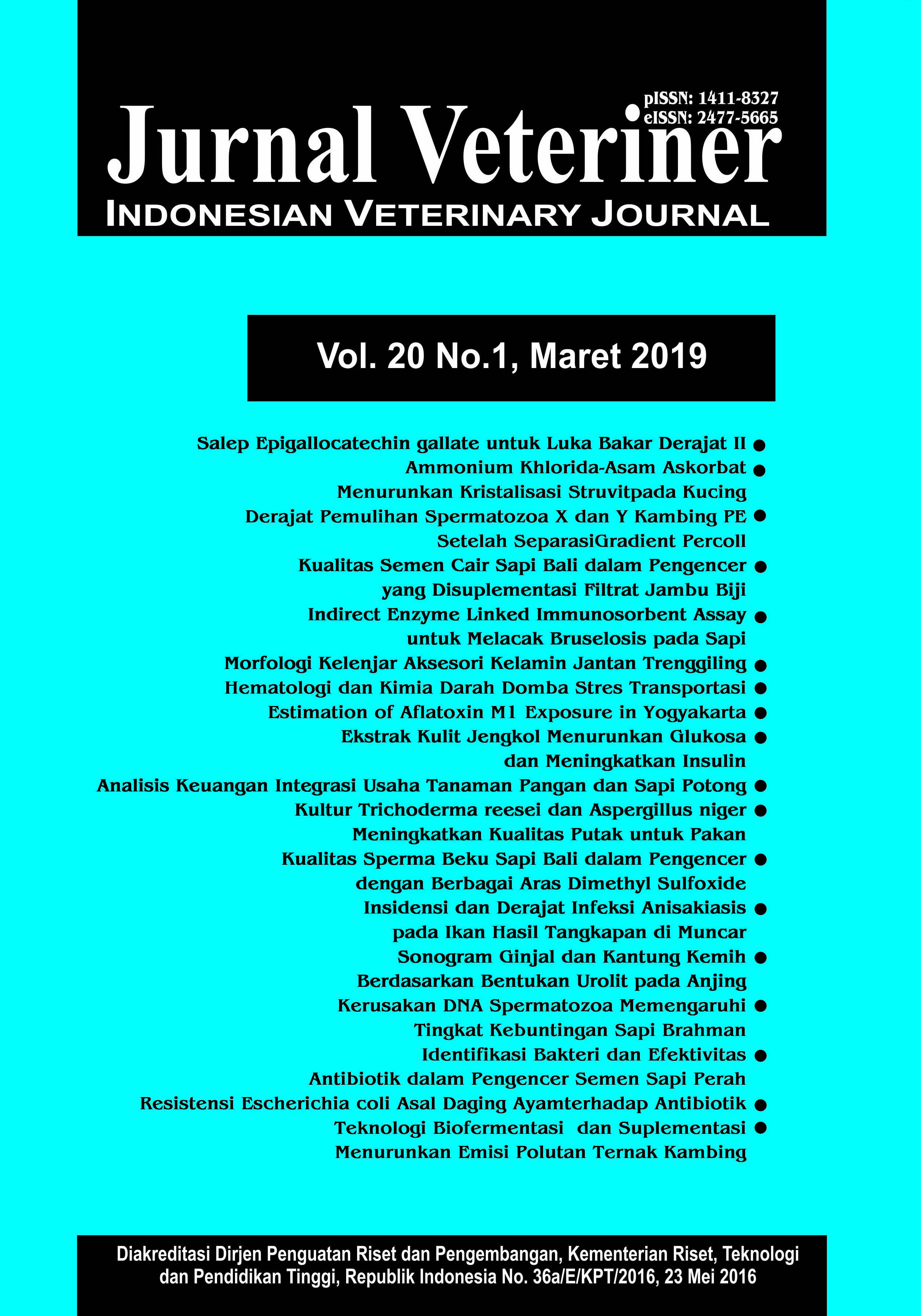Terapi Ammonium Khlorida-Asam Askorbat untuk Menurunkan Tingkat Keasaman Urin dan Kristalisasi Struvit pada Kucing Urolithiasis (THERAPY AMMONIUM CHLORIDE-ASCORBIC ACID FOR LOWERING URINE ACIDITY AND STRUVITE CRYSTALLIZATION IN FELINE UROLITHIASIS)
Abstract
Struvite/Magnesium ammonium phosphate (MAP) is common causes of feline urolithiasis. Prevent the formation of MAP crystallization can be treated by adjusting the pH urine in acid conditions. Urine with an acid pH will decrease struvite activity product (SAP) by preventing the phosphate deprotonation process which is the main constituent of struvite components. This study aims to determine the potential of a combination of ammonium chloride (NH4Cl) and ascorbic acid to decrease SAP by retain the urine pH under normal conditions. Twelve male cats, 2-5 years old and body weight 3.0 ± 0.8 kg were diagnosed struvite urolithiasis used for this study. Cats have a
9
clinical history of hematuria, dysuria, polyuria, and stranguria. Diagnosis of urolithiasis performed by clinical examination, USG, x-rays, and urinalysis. Cats that found struvite urolith, treated with 200 mg/kg NH4Cl and 100 mg/kg ascorbic acid orally twice a day. The research objects were observed included urine pH and crystaluria density. The data were analyzed using analisis of varian. The result of this study showed NH4Cl and ascorbic acid treatment can decrease the urine pH at 8 cats (89%) with an average pH 6.3 ± 0.3. Microscopic examination of the urine showed the struvite crystallization more infrequently than before therapy. The study concluded that the combination of NH4Cl and asam askorbat can lower the urine pH and reduce struvite crystal density in the urine.



















